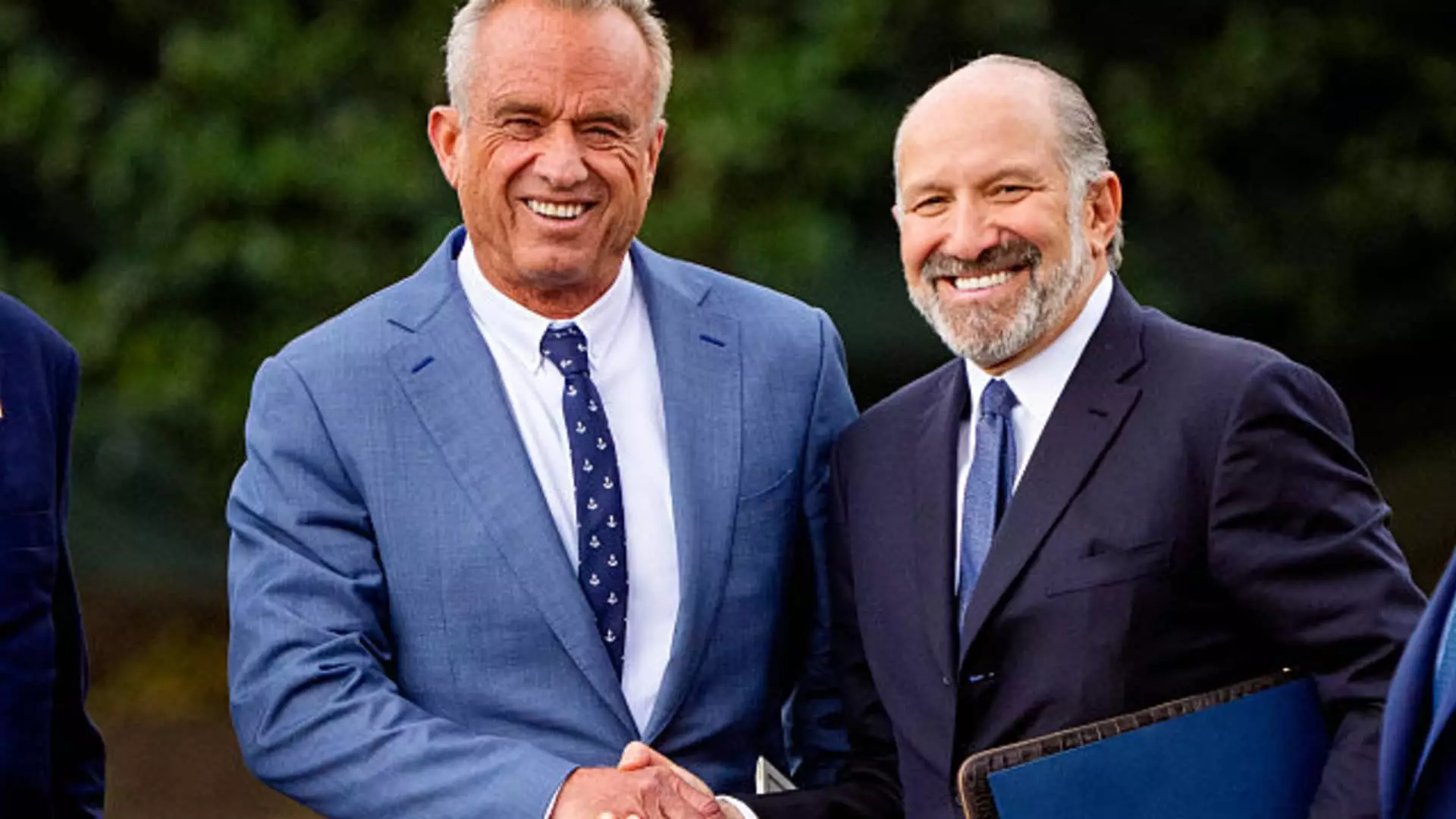The appointment of Robert F. Kennedy Jr. as the Secretary of Health and Human Services has sparked outrage, especially among public health experts who recognize the stark contrast between his anti-vaccine rhetoric and the agency’s mission to safeguard American health. The core purpose of the HHS is to promote health, wellness, and vaccine compliance. However, Kennedy’s actions and statements portray a troubling skepticism toward scientifically validated health measures, leading many to question his qualifications for a role that directly impacts public welfare. His opposition not only risks undermining vaccination efforts but could also embolden misinformation — a phenomenon that has already demonstrated dire consequences in recent outbreaks of preventable diseases.
The FHA’s Loss and Concerning Resignations
Peter Marks, the head of the FDA’s biologics division, recently resigned in protest against Kennedy’s appointment, citing a moral obligation to stand against what he perceives as an anti-science agenda. When key figures in health agencies start to pack their bags due to a newfound ideological misalignment, it indicates a potentially severe shift in public health policy. The resignation reflects concerns that Kennedy’s leadership could dismantle years of effort aimed at combating misinformation and preventing disease outbreaks. What is particularly concerning here is not just one person’s departure but the larger implication it holds for agency morale and credibility, not to mention the potential for fostering an environment where evidence-based medicine takes a backseat to personal beliefs.
The Impacts on Health Outcomes
Kennedy’s comments suggesting that vaccines, like the MMR (measles, mumps, rubella) vaccine, aren’t essential or beneficial downplay the overwhelming consensus that vaccinations save lives. His promotion of unproven treatments during a measles outbreak only adds fuel to the already burning fire of vaccine hesitancy. The CDC has reported unnecessary deaths due to measles infections, a tragic irony considering that these vaccines have effectively eliminated these diseases in large populations. The urge to raise the public’s ‘freedom to choose’ over the need for community health protections isn’t merely a philosophical debate; it has real-world implications that could tragically lead to lives lost or further health crises.
An At-Risk Public Health Infrastructure
Cantor Fitzgerald analysts have articulated their worries eloquently by emphasizing that a leader holding anti-vaccine beliefs lacks the necessary qualification for a role as influential and consequential as that of the HHS Secretary. This is a statement reflective of broader anxieties disturbing not just the scientific community but potential vaccine manufacturers and investors as well. The public health infrastructure itself is at risk when decisions are led by individuals who promote conspiracy theories over scientifically grounded methods. As we have witnessed, the resignation of Marks was not just another corporate shift but a symbol of the unrest permeating through an agency crucial for bridging the gap between public policy and personal health choices.
Financial Market Ramifications: A Misplaced Focus?
The fallout from Marks’ resignation extends beyond political corridors, impacting stock transfers and investor confidence in companies like Moderna and Novavax. While analysts have suggested that the financial ramifications shouldn’t overshadow the more alarming implications of Kennedy’s appointment, it’s hard to overlook how closely tied public sentiment and healthcare policy are to market performance. Investors are not just worried about immediate returns; they are concerned about the long-term viability of vaccine production amidst increasing uncertainty. The sequential decline in share values underscores a stark economic reality: When public health initiatives falter due to poor leadership, economic consequences will inevitably follow.
A Call for Accountability and Leadership Integrity
Finally, the call for reevaluating Kennedy’s role at HHS goes beyond financial markets or even individual agency resignations. It strikes at the very heart of public trust in health institutions at a time when trust is already eroding due to misinformation. America deserves the best when it comes to leadership in health and human services—individuals who not only speak science but also embody its principles. As the narrative around vaccine safety becomes increasingly muddled, the need for clear, science-backed guidance has never been more critical. How many lives must be jeopardized before we choose integrity and scientific acumen over charismatic but dangerous rhetoric? The time for decisive action is now.

